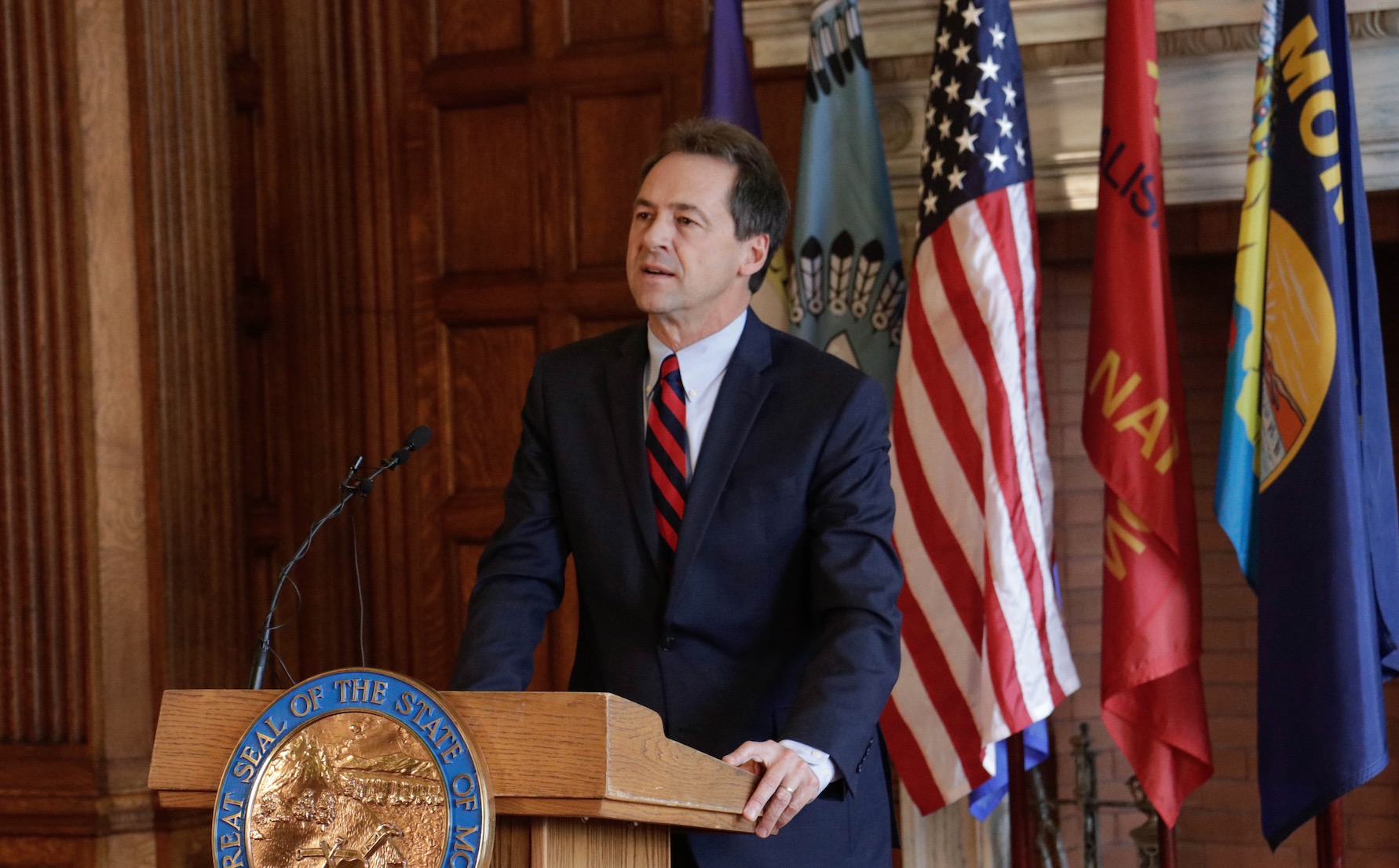By Shaylee Ragar and Tim Pierce UM LEGISLATIVE NEWS SERVICE
HELENA — On the final day of the 66th Montana Legislature, lawmakers completed their only state constitutionally mandated task by passing the bill that sets the budget for state agencies.
House Bill 2, which spends about $10 billion of state and federal money over the next two years, passed its final vote in House of Representatives 73-25.
The bill had moved through the session relatively quickly, passing the House 54-45 for the first time in late March and then passing the Senate 28-21 in early April. The final vote in the House was to adopt Senate amendments that added about $12.3 million of state money to the budget, with the biggest chunk of added spending going into the state health department.
In addition to outlining expenditures for the next two years, the budget includes $210 million in reserves for the same time period, which can be used in a budget crisis or for natural disaster relief. The budget will cut 100 vacant full-time positions from the Department of Public Health and Human Services and will add more than $700,000 to the Department of Natural Resources and Conservation budget.
‘Hanna Act’ passes
After being introduced in January, the bill that would create a special position in the Department of Justice to investigate all missing persons cases in the state passed its final vote in the Montana Legislature 96-1 Tuesday.
House Bill 21 is named “Hanna’s Act” after Hanna Harris, who was found murdered on the Northern Cheyenne reservation in 2013.
The legislation would spend $100,000 a year on the position. Rep. Rae Peppers, D-Lame Deer, the bill’s sponsor, said it wouldn’t have passed without help from both sides of the aisle.
“It was so bi-partisan in this House that it overwhelms me right now. And they have told me this themselves, that they understood human trafficking is a serious issue for all people in Montana,” Peppers said.
“Hanna’s Act” is the last in a package of bills addressing missing and murdered people to pass the Legislature.
Other bills included in the package were House Bill 20, which lets law enforcement officers file missing persons reports for children who have been taken by their parents, House Bill 54, a bill that would allow any law enforcement official in the state to file a missing persons report, and Senate Bill 40, which creates a photograph directory through the state Office of Public Instruction used for only for locating missing children.
State steps up efforts to prevent aquatic invasive species
Lawmakers made a last-minute switch in funding for a bill that aims to pay for aquatic invasive species prevention programs, but it will still move forward to the governor’s desk.
Rep. Willis Curdy, D-Missoula, carried House Bill 411, which proposed an increased tax on boat licenses to pay for AIS prevention programs. The species, like quagga and zebra mussels, have invaded most of the Midwest and have cost billions of dollars in damages.
Montana is mostly free of aquatic invasive species, however the risk of invasion is ever-present as boaters carry in water from infested lakes in other states.
“I think it’s an expectation that this is something Montana is going to deal with for a long, long time,” Curdy said.
Sen. Fred Thomas, R-Stevensville, suggested amendments to the bill to remove the tax on boat owners and instead get funding from an increased fee on out-of-state investment advisers who pay for licenses in Montana. The change made HB 411 contingent on the passage of House Bill 694, which contained the language to increase the fee.
The Senate approved HB 694 on Thursday 28-21.
Curdy said he thinks every bill should stand on its own without contingency on another policy. However, he said he was glad to see his bill pass a final vote. It passed the House as amended 62-35.
Criminal justice reform for sex crimes
Lawmakers ended the 2019 session having passed a number of bills aimed at cracking down on sex crimes.
Gov. Steve Bullock signed House Bill 282 into law Thursday, which makes sexual contact between residents of alternative adolescent residential facilities and employees of the facilities illegal, even if the resident is of consenting age. Rep. Denley Loge, R-St. Regis, said a series of investigative reports from the Missoulian prompted the proposal.
Rep. Shane Morigeau, D-Missoula, also carried several bills aimed at streamlining prosecution of sexual abuse of vulnerable people.
House Bill 173 and House Bill 640 are both co-sponsored by Republicans and Democrats. HB 173 eliminates consent as a defense if an employee of a public or private school engages in sex with a student.
HB 640 revises statute of limitations laws to allow for delayed reporting in cases of child sexual abuse. The bill was proposed in response to the case of James “Doc” Jensen who admitted to sexually molesting high school athletes in Miles City between the 1970s and 1990s. He wasn’t charged until last fall.
Sen. Diane Sands, D-Missoula, a veteran lawmaker, who founded Montana’s first rape crisis center in Missoula, carried Senate Bill 52, which will streamline and create strict guidelines for processing sexual assault kits used to prosecute the crime in court.
In the past, Sands said laws regarding sexual assault have been “inconsistently applied” by Montana’s judicial system, and that she hopes her legislation will help perpetrators accountable.
Shaylee Ragar and Tim Pierce are reporters with the UM Legislative News Service, a partnership of the University of Montana School of Journalism, the Montana Newspaper Association, the Montana Broadcasters Association and the Greater Montana Foundation. Shaylee can be reached at shaylee.ragar@umontana.edu. Tim can be reached at tim.pierce@umontana.edu.















